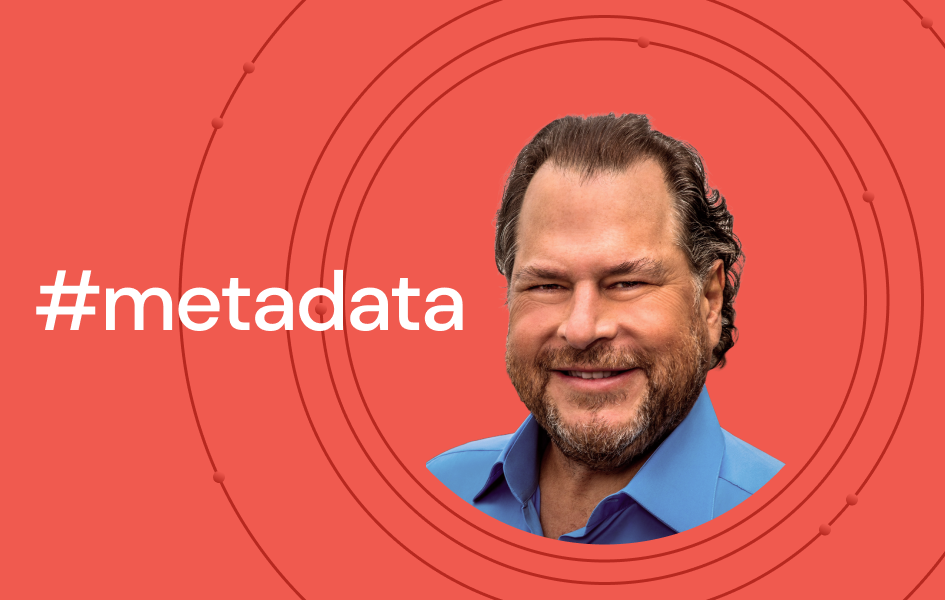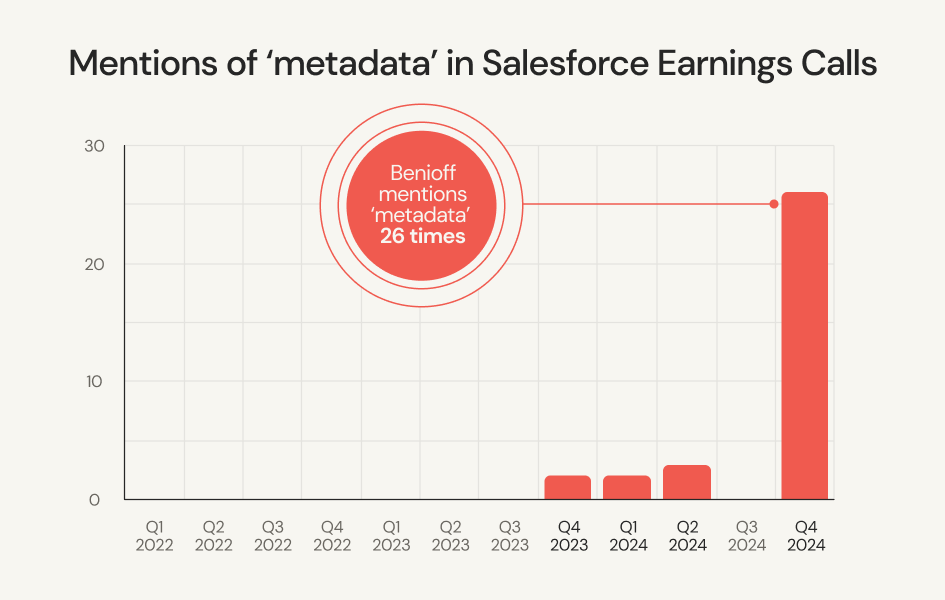
For over a decade, I've been deeply entrenched in the Salesforce ecosystem, witnessing its evolution firsthand. Listening to Salesforce’s quarterly earnings calls has been a staple in my routine, offering insights that helped shape our business strategy.
However, the latest earnings call left me surprised. There was a significant shift in focus, and no, it’s not AI.
In a deep dive into past earnings call transcripts, I found the term “metadata” had only been mentioned five times since 2018. But in this year’s call, it was mentioned a staggering 26 times.
Conversely, AI has been mentioned by Marc in every call over the same period and is growing in frequency.

What could have sparked this sudden fixation on metadata? Is it indicative of a strategic shift within Salesforce’s vision or an emergent trend we should be honing in on?
But, let’s back up for a moment. What is metadata?
Metadata, often described as ‘data about data’, is the cornerstone of many technological advancements, including AI, machine learning, and data analytics. It plays a crucial role in platform performance, security and compliance, data governance, scalability, and more.
With the exponential growth of data and the need for organizations to harness its full potential, metadata has emerged as a critical component of success. It empowers data-driven decision-making and helps unlock new avenues for growth and innovation.
Benioff’s newfound focus on metadata carries significant implications, not only for Salesforce but for the broader tech ecosystem. As the leader of the world’s largest CRM platform, when his attention shifts, businesses across the world follow suit.
So why the sudden shift? A few factors come to mind:
AI has undoubtedly been instrumental in Salesforce's continued success, with the growth of Einstein and the recent launch of Einstein 1. However, the recent earnings call suggests that Benioff recognizes the critical role metadata plays in training and deploying trusted AI solutions.
Metadata and AI are not mutually exclusive, they are symbiotic. Metadata provides the foundation for AI, ensuring data quality and transparency. Conversely, AI relies on accurate metadata to avoid the pitfalls of bad data.
However, AI gets all the hype. Looking at the Google Trends results for the search term ‘metadata’ shows not much change over the last 20 years. However, there is a small noticeable rising trend from 2020 to the present day. When you compare AI as a search term to metadata, it dwarfs metadata, especially given the general public's interest in generative AI.
The stark contrast between the Google Trends plots, with explosive growth in AI search, vs. Marc Benioff’s recent interest in metadata signals that we may be hearing a lot more about metadata.
As we venture further into 2024, understanding and leveraging metadata will be essential for staying ahead of the curve. Whether it’s optimizing system performance, enabling data-driven decision-making, or ensuring regulatory compliance, metadata holds the key.
At Hubbl Diagnostics, we live and breathe metadata. In fact, we designed our platform from the ground up to run machine learning against aggregated metadata analysis and provide unparalleled insights for businesses operating in the cloud. Get started for free here.
Marc Benioff’s embrace of metadata makes one thing clear: metadata is no longer just a footnote, but a fundamental pillar of success.